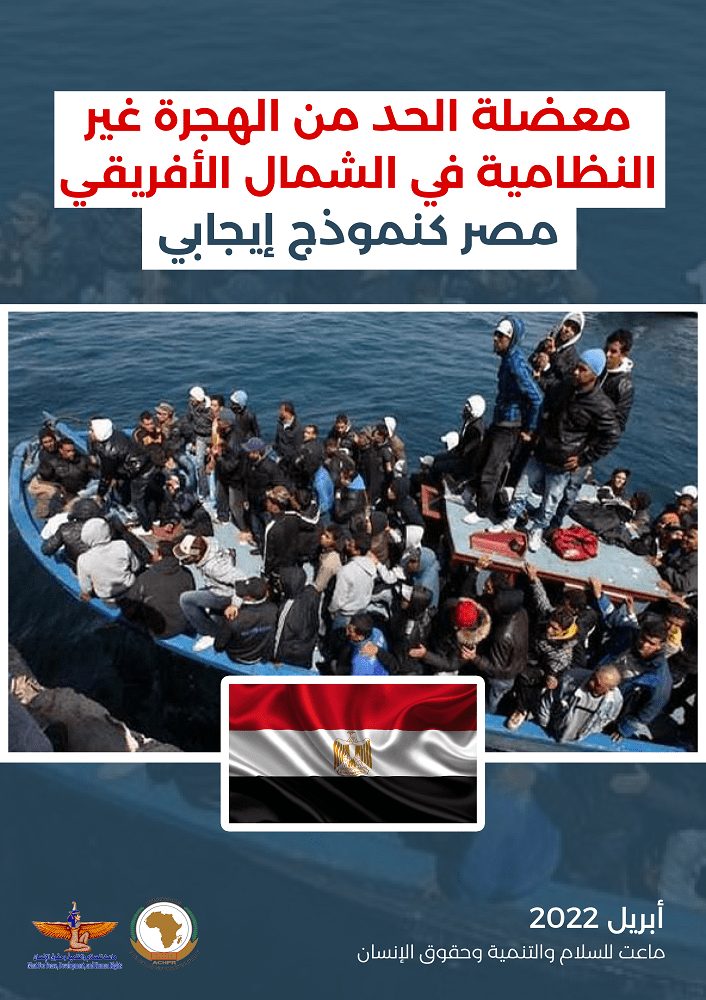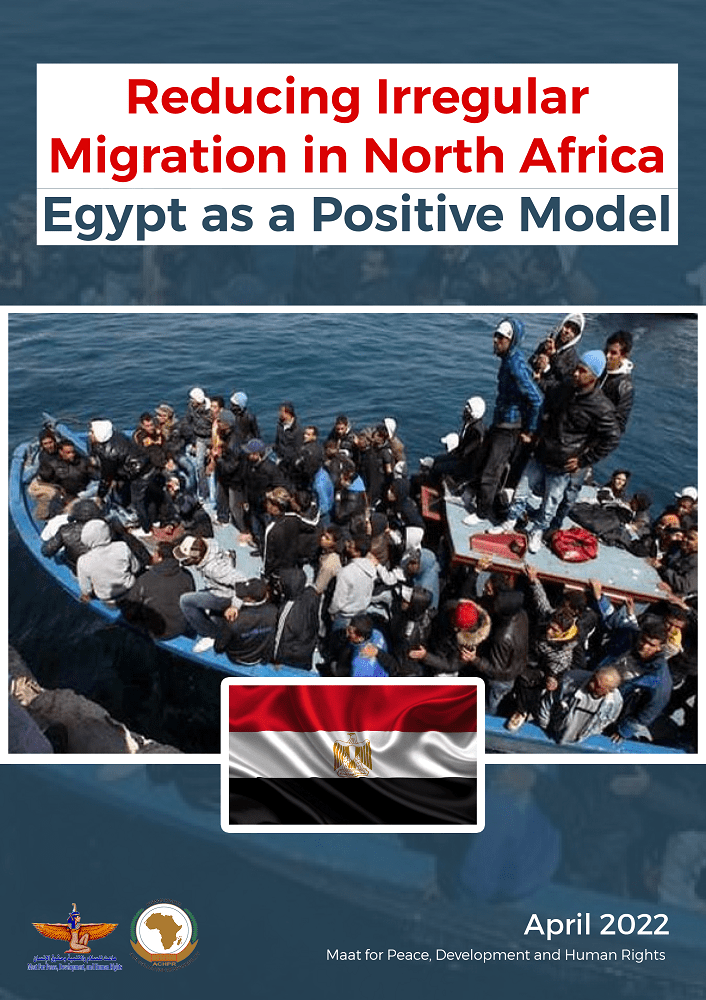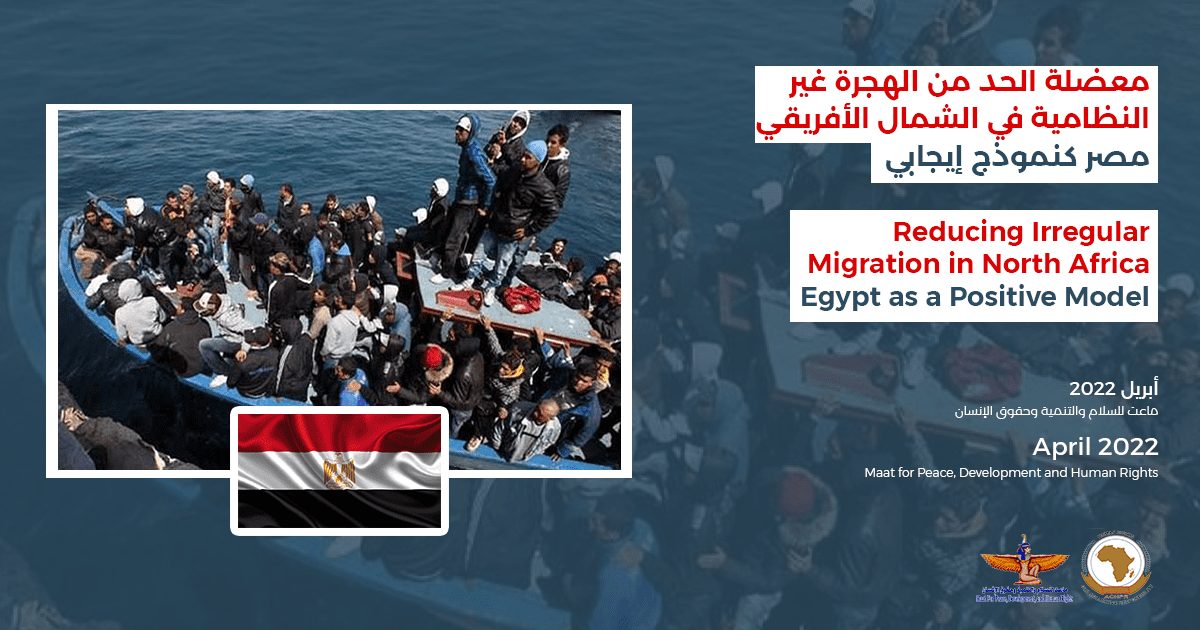Maat: North Africa is still the most affected by irregular migration policies and the ensuing phenomenon of human trafficking
Okeil: We recommend the Egyptian government to work to formulate a continental strategy to address the phenomenon of irregular migration
Maryam Salah: We call on the international community to carry out humanitarian interventions to improve safe access to migrants’ services
Maat for Peace, Development and Human Rights stated that North Africa is considered among the regions most affected by irregular migration policies and the ensuing phenomena of human trafficking as well as migrant smuggling. This was mentioned in A study entitled "The Dilemma of Reducing Irregular Migration in North Africa: Egypt as a Positive Model". This study was issued in conjunction with Maat’s participation in the 71st ordinary session of the African Commission on Human and Peoples' Rights, convened from April 21 to May 13, 2022, in light of the African Commission's interest in the issues of reducing African irregular migration.
According to Maat, in October 2021, about 85,610 thousand people arrived in Europe via North Africa, 80,588 of whom arrived via the Mediterranean, and about 5,022 thousand irregular migrants arrived via land. Of them, 47,932 arrived in Italy, 30,028 thousand people arrived in Spain, 6,462 thousand irregular migrants arrived in Greece, and about 464 people arrived in Malta.
The study touched on the fact that Libya tops the countries exporting migrants along the northern African coast, reaping hundreds of millions from these operations, as the profits of migrant smuggling gangs are estimated between 255 million and 300 million dollars in Libya alone. This study took Egypt as a positive model and focused on Egypt's current policies in combating irregular migration, especially in the last eight years.
In the same context, Ayman Okeil, the international human rights expert and president of Maat, said that the responsibility for setting national priorities on migration and following up on their implementation lies with governments in partnership with all concerned parties, and this is what the Egyptian state has worked on through its cooperation with the European Union, as it succeeded to manage its borders and to curb irregular migration flows. Egypt has, therefore, received international acclaim from various entities, such as the confirmation of the United Nations Office on Drugs and Crime that Egypt possesses a comprehensive legislative framework to combat human trafficking and migrant smuggling, as well as the praise of former German Chancellor Angela Merkel for the efforts made by the Egyptian government to secure its maritime borders, which contributed to Preventing immigration from Egypt to Europe almost completely.
Okeil recommended that the Egyptian government, in light of its success in this file, share its experience in addressing the phenomenon of irregular migration with North African countries, and formulate a continental strategy that brings together North African countries to address irregular migration. Okeil also called on the League of Arab States to launch a special mechanism to monitor developments in the file of combating irregular migration in North African countries, and to follow up on its latest developments periodically.
On her part, Mariam Salah, a researcher at the African Affairs and Sustainable Development Unit at Maat, said that in light of the challenges and poor financial capabilities on the African continent, the phenomenon of irregular migration has greatly exacerbated, especially in recent years, as people are triggered to search of better living conditions. During 2021, about 741 people died on the central Mediterranean route to Italy, and 250 people died on the Atlantic route to the Canary Islands.
Salah called on the Special Rapporteur on Refugees, Asylum-Seekers, Displaced Persons and Migrants at the African Commission on Human and Peoples' Rights to strengthen patterns of cooperation with countries of origin, destination, and transit by migrants in North Africa to develop plans and procedures for urgent and life-saving humanitarian interventions, improve safe and full access to services for migrants, and implement protection initiatives, especially Child protection, anti-trafficking and alternatives to detention.
To view the study, please visit the following link:

 |
 |











